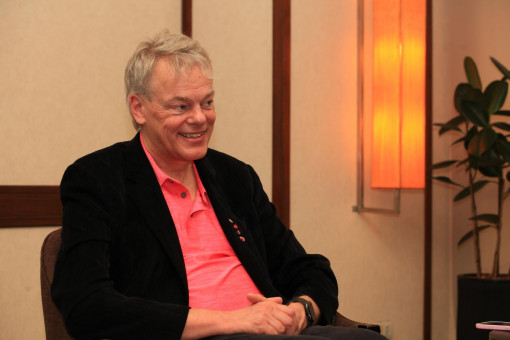Nobel Laureate tackles Alzheimer’s

Further research into the communication between cells in the brain is crucial in finding a cure for individuals suffering from brain-related diseases such as Alzheimer’s disease, an expert says.
This is vital for enhancing their quality of life, especially during the global challenge of ageing populations, said Prof Edvard Ingjald Moser, Nobel Laureate in Medicine.
He added that self-reliance built upon good health is the correct pathway to achieve this goal.
Addressing the Japan-Asean Bridges event series hosted by the International Peace Foundation in Bangkok, Prof Moser highlighted the significance of his discovery. He emphasised that his research, focused on understanding the normal functions of the brain, lays a crucial foundation for both treatments and insights into various diseases.
Prof Moser stresses the importance of comprehending diseases, particularly Alzheimer’s. Understanding the disease’s origins, the mechanisms causing it in the brain, and the cellular processes involved are essential.
“With this kind of knowledge, treatments can be devised. It represents a significant step towards finding a treatment not only for Alzheimer’s but also for other conditions,” he explained.
Prof Moser told the Bangkok Post the landscape of diseases is changing and as people are getting older, they have more chances of developing neurodegenerative diseases like Alzheimer’s or Parkinson’s disease.
“The risk of the disease escalates with age, surpassing 20% among individuals aged 80 and above. As the ageing population continues to rise, so does the number of patients. However, treatment options still lag behind the progression of the disease,” he said.
“I’m unsure about the proper treatment methods. Research remains the only avenue to address these diseases effectively. We must strive to comprehend the brain’s workings and the triggers of these diseases. Understanding the normal brain function is key. Research on the brain is our sole path towards discovering treatments, which will come in due time. It’s merely a matter of when,” he said.
He went on to stress the importance of studying neuron populations, where hundreds or thousands of brain cells work together in order to understand the brain better.
“It’s a collaborative effort among all these brain cells. Understanding how they communicate and interact is fascinating. This can be achieved by monitoring the electrical activity of thousands of cells simultaneously. Additionally, we can manipulate the activity of some cells to observe the responses of others,” explained Professor Moser.
He believes we’re entering a new era where we’ll witness the coordinated efforts of vast numbers of cells working together to generate normal brain functions as well as dysfunctions such as Alzheimer’s and other diseases.
“My future work will be related to studying big populations. And because we have new technology and so much data, we need new ways to analyse this data,” he added.
Prof Moser was awarded the Nobel Prize in Medicine in 2014 for his groundbreaking research on how the brain computes spatial location and memory. His work led to the identification of the specific cells comprising the brain’s positioning system.
His works included the discovery of grid cells in the entorhinal cortex, which is important for understanding memory and its loss and in finding new ways to treat Alzheimer’s. He attributed his achievement to the unwavering support of his family and colleagues, emphasising that the Nobel Prize is no longer an individual accomplishment but a collective effort.
“It’s all about teamwork. Leading a team of brilliant individuals from around the globe, we collaborate to tackle the challenges of understanding the brain,” he added.

